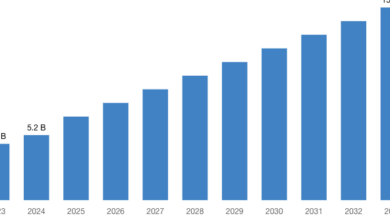Washington Legislature debates expanding protections against utility shutoffs for the disabled

(The Center Square) — Millions of Washingtonians may be safe from evictions through March, but state lawmakers are still brainstorming how to guarantee the most vulnerable of them keep their lights on.
Last year, the Washington Transportation and Utilities Commission banned public and investor-owned utility companies from cutting service for non-payment through April 30 in light of pandemic-related hardships on households.
Since October, the number of Puget Sound Energy customers behind on their bills by more than three months was up by 45%.
The debate over power shutoffs is especially hot as Central and Eastern Washington see single digit temperatures this week and Seattle braces for as much as six inches of snow this weekend.
Dubbed the “Energy for All Act,” House Bill 1490 would strengthen current laws protecting power customers from shutoffs in Washington’s coldest winter months November 15 through March 15.
Currently, state law protects customers eligible for energy assistance who are still on the hook for paying their debts when Washington’s utility shutoff moratorium expires in April.
The bill would also ban utility companies from cutting service for the disabled or low-income households earning 80% of area median household income or 200% of the federal poverty level.
It would further have utilities offer monthly payment plans totaling no more than 3% of a customer’s monthly earnings. Service shut offs would apply if customers default on their payment plans or surpass a certain power limit.
“When we cut off these vital services, we take away people’s ability to care for themselves, their families, and their communities,” said state Rep. Harris-Talley, D-Seattle. “This is a compounding harm, particularly for our low income neighbors, elders, and seniors in our communities, those with disabilities and working families already struggling.”
The economic hardship brought on by the COVID-19 pandemic has exacerbated the problem. Washington is still contending with a 7.1% jobless rate as the death toll from the virus continues to rise amid the arrival of new viral strains.
A 2019 survey of South Seattle and Southern King County residents by Puget Sound Sage shows utility bills were a mammoth burden for communities of color long before the pandemic.
About 36% of respondents said their energy costs had “increased a lot” in the past five years and 48% worried about their energy costs increasing.
According to the survey, Seattle City Light was meeting 72% of the demand for low-income bill aid in 2019. Puget Sound Energy met just 33% that year.
John Rothlin, a spokesperson with Spokane’s Avista Utilities, testified to members of the House Environment and Energy Committee on Thursday that 800 of its 379,000 customers had not made a payment since last February, with overdue balances averaging about $1,200.
Nicholas Garcia, a policy director at the Washington Public Utility District Association, shared the opinion of those testifying against the bill on Thursday that shutoffs should be on the table unless the state steps up direct financial aid.
“[Public utility districts] do not have deep reservoirs of funds to draw upon to meet these types of expenses,” Garcia said. “This [bill] could result in significant revenue shortfalls that would have to be made up through rate increases paid by the remaining customers, and it could jeopardize a party’s ability to issue needed capital financial financing bonds.”
Scientists and housing advocates share the opinion that utility disconnections are a public health hazard in the pandemic if customers have to find heat elsewhere.
A study released by Duke University in January found that counties with utility disconnection moratoriums saw county level cumulative COVID-19 infections decreased by 4.4% and cumulative deaths from the virus fall by 7.4%.
“The benefits of these policies extended to all members of the community, not just those who were experiencing energy or utility insecurity,” said Kay Jowers, a co-author of the study. “These policies are providing to your state citizens by reducing COVID-19 infections and deaths.”
The U.S. Department of Energy reports the national average energy burden for low-income households is 8.6% or three times higher than the 3% of non-low-income households. In some areas, energy burden can be as high as 30%.
On Thursday, HB 1490 boasted 21 sponsors. It awaits further action by the House Environment and Energy Committee.
Disclaimer: This content is distributed by The Center Square


